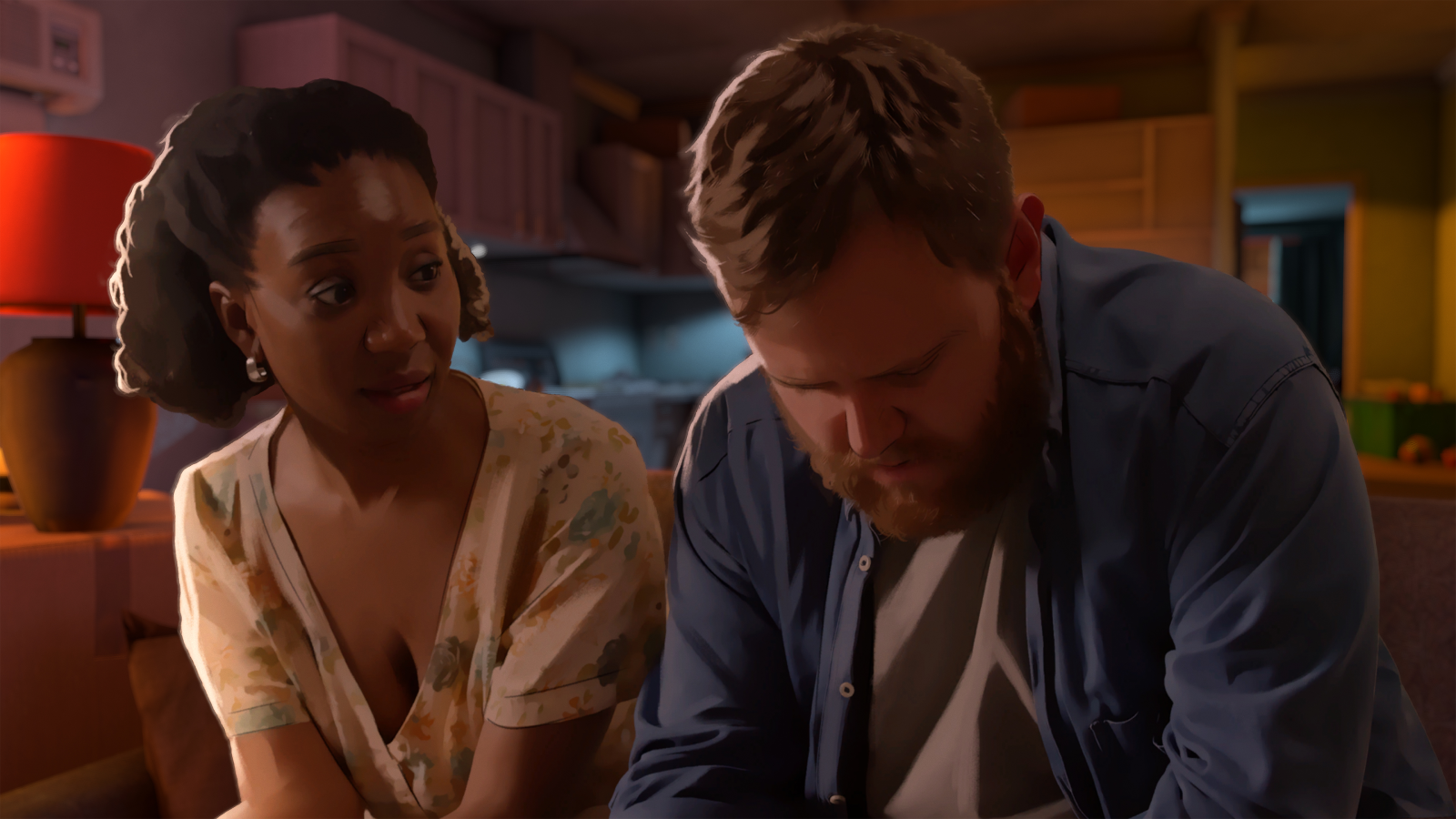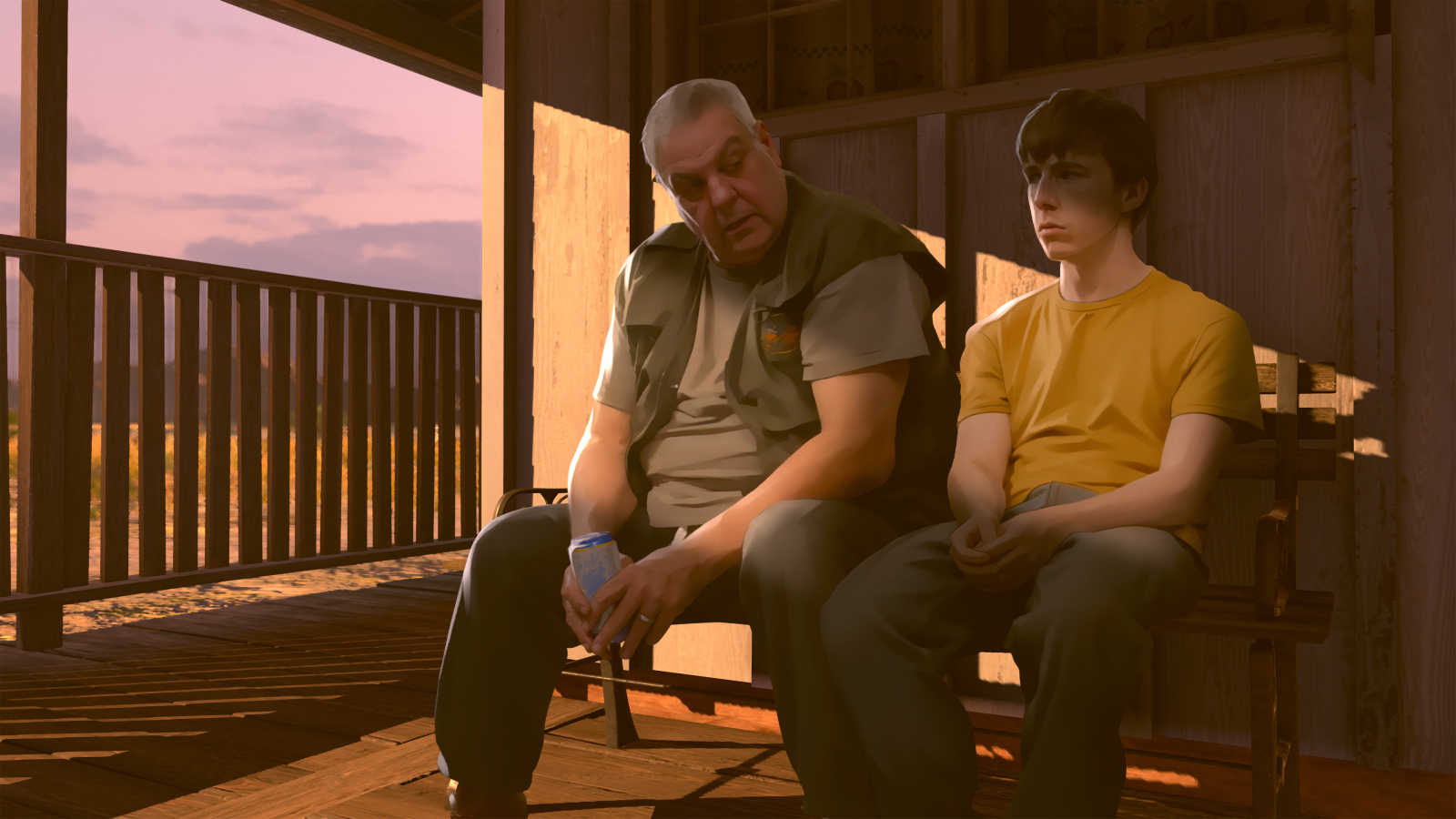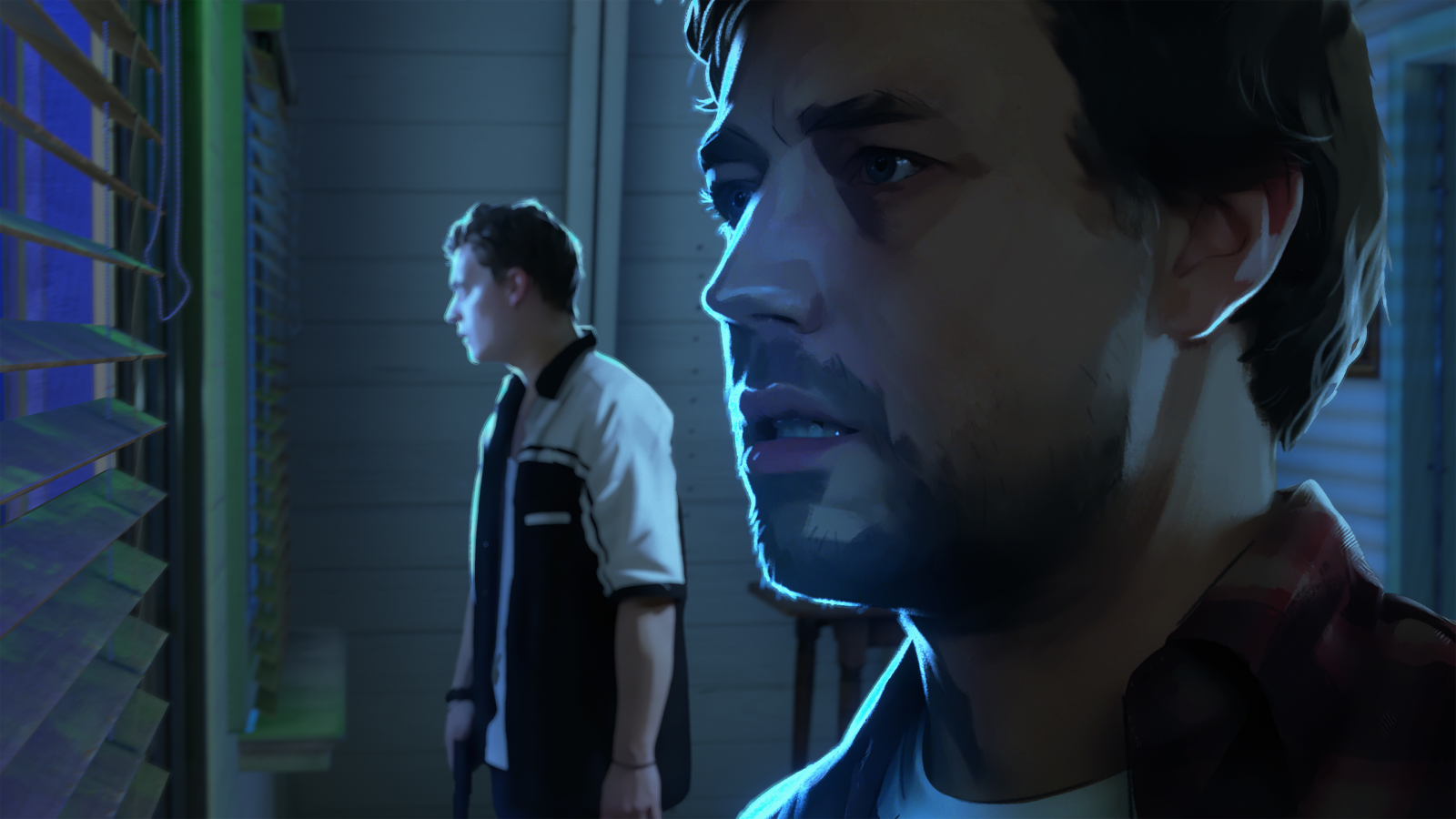“You’ve got people with different points of views coming at the story and at the experience and being like, ‘what do you think about that? How about we do that like this?’ It just improves what we’re making.” Marchal is the CEO and creative director of Interior/Night, a new London-based studio creating Xbox exclusive As Dusk Falls as its first game. She’s known for her work at Quantic Dream as lead game designer on Heavy Rain and Beyond Two Souls. As Dusk Falls is a similarly narrative-driven game. But following her time at Quantic Dream, she decided to set up her own studio with diversity and authenticity at its heart. “I was in the industry for 15+ years, I was pregnant with my second child and thought it’s now or never,” she says. “I want to work with people I love and respect and work on this game specifically, so I took the chance.” Marchal is joined at Interior/Night by Charu Desodt as production director, whose previous work includes Sony’s Singstar franchise. “I loved the clarity of vision,” says Desodt of Marchal. “And having a creative director who has that clarity of vision is like gold dust. She was so clear about what we’re making, and why we’re making it and who we’re appealing to.” Desodt is equally as passionate about developing a multicultural, diverse studio. “I think authenticity is, for me, a real pillar of the studio, and the games we make,” she says. “And one leads into the other as well: when you have people who are authentic to life, you have a whole diversity within the workforce.” And that extends to the game’s cast too, “to make sure that lived experience really comes through in their portrayal of the character,” says Desodt. I asked Marchal what she learned from Quantic Dream that influenced Interior/Night. “I would say two key things: not making games as a marathon. You have to be strong-willed and determined and passionate to see it through,” she says. “Every game counts, you won’t be making 25 games in your career. So every game counts, make them as good as you can. “The second thing is creativity first. None of us here in the studio are here to rehash things that have been done before. We’re really trying to push the boundaries at every level of what a narrative game can be. And what audience it could attract.” As Dusk Falls is a narrative game, but it’s influenced by prestige TV as much as games. Further, it’s something of a social experiment with a focus on multiplayer - Twitch Plays Pokémon was cited, surprisingly, as an influence. The plot - a crime drama - follows two families whose worlds collide, touching on mature themes of legacy, family, and resilience. In gameplay terms, it’s part Heavy Rain and part Black Mirror: Bandersnatch, but with up to eight players making decisions together using a mobile phone app or a controller. “There are experiences that are offered by video games that you can’t find in other media,” says Desodt. “And I think that some people get intimidated by a controller. And they don’t know really how to hold it, and it stops them from doing anything.” Decisions are voted on by players who move an on-screen cursor using their phones, with choices occuring roughly every 20 seconds. It’s meant to inspire banter, as friends and family sit on the couch (or online) to experience the story together, barter on decisions, and question each other’s choices. Twitch integration expands that multiplayer experience even further. The game even tracks individual choices and then sums up your values and traits at the end, adding a sort of personality quiz layer to it all. Quicktime events also have you swiping and tapping the screens, although they’re not too intrusive and can be amended in the accessibility options (which also has a wealth of text and input variations). The aim is to “engage players’ hearts and guts, not their thumbs”. There are around 12 movies’ worth of script, with one playthrough taking around six hours through six episodic chapters. And a web of possible choices proves how expansive the story can be. The art style is also particularly striking. The team recorded live actors on a green screen and then inserted the performances into 3D environments, before hand-painting over the top to emphasise emotion and expression. The effect is akin to a moving graphic novel. “This story deserves its unique, evocative art style,” says Marchal. “And we didn’t want to go down the route of adding as many pixels on the screen as we could because honestly, very few people care. What really matters is how you convey the story and the emotional moments to the players. We went with a stripped back evocative style, so that you can take in the emotion, have the time to process, and analyse what you think is happening.” Says Desodt: “I think it really showcases the actors’ performances, all those microsecond expressions that are very difficult to convey, sometimes, using other art styles, but we understand instinctively as humans. That’s what we’re able to get across to players.” It’s clear that this is a passion project for Marchal, not just in setting up a brand new studio but in the opportunity to tell such a mature story. “I’ve never worked on any other genre, as a designer or lead designer, anything I’ve done,” she says. “I’m just super interested in how it’s the most insightful genre within games with the potential to grow really universal, because it’s based on stories, but it’s more than that - it’s got agency in it. So players can really craft their journey in the narrative space and reflect on the themes of the story. “[Gaming] is the only medium that gives you that level of insight, compared to a show on TV or film. There are great stories there, but you’re just leaning back, you’re thinking about the characters you’re seeing in the story, but you’re not leaning in, taking part. And I think that’s super powerful.” It’s that interaction and emotional investment from players that explains why Marchal continues to make games, and not a TV show, she says. “I would never work in another industry other than games, I’m just passionate about it. It’s like making a film in 3D, because there are so many branches and it’s so modular, but whichever path you take you almost can’t predict what the shape of the final story is. But it still flows.” Another difference to Marchal’s previous work at Quantic Dream is that As Dusk Falls is published by Microsoft exclusively for Xbox. Why not other platforms? “The first thing, and the most important one, is that they just understood the vision from day one,” says Marchal. “And that was so refreshing… They just rolled with it, just loved it, I think from the get go. “The other reason is that for our first game, coming out on Game Pass is great to get your game played. Also xCloud is amazing, because you can play the game on your phone wherever you are. A big part of what we’re thinking is that we should go to people, instead of asking them to buy a console or have this or that type of PC, and the fact that xCloud allows you to play on your phone is just very approachable for us. “So part of the decision was to go with a first party publisher, because of that exposure, that understanding and support of the creative that they were able to give us and their reach to new audiences or different types of gamers.” Marchal wants Interior/Night to be known for “bold, new, interactive narrative experiences that you can share, and for a mature audience.” As Dusk Falls is the first evidence of that, a game that blurs the line between gaming and TV with its focus on multiplayer and accessibility. And the studio ethos of authenticity and inclusivity has naturally seeped into the game too. All the ingredients are there, then, for Interior/Night to achieve its lofty ambitions. The success of As Dusk Falls will fall predominantly on its script and performances, and for that we’ll have to play it to conclusion. As Dusk Falls is out on Xbox and PC on 19th July, and day one on Game Pass.



